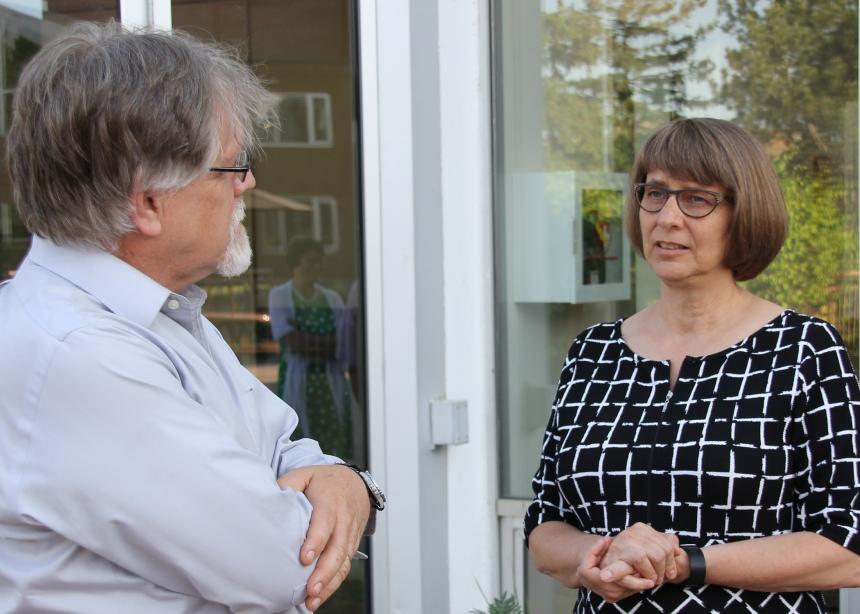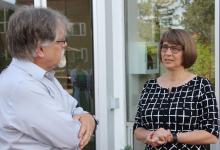The 2016 Ralph and Eileen Lebold Fundraising Dinner, held on June 2, 2016, at Conrad Grebel University College, featured Arli Klassen, chief development officer for Mennonite World Conference, who spoke to the “Messiness of becoming the people of God.”
She began by telling the story of her shift in identity when she, a Christian woman from North America, went to Lesotho, South Africa, where she was a white mother. Culture forms people’s identity, she said, noting that her missionary aunt told her years earlier that “you can’t really know yourself until you live in or interact with a different culture—and only then we can begin to see how we are shaped by our own culture.”
Walking through a series of Bible stories—from the tower of Babel to the glorious cross-cultural worship in Revelation 6 and 7—she noted that the biblical vision of the people of God is not sameness, but diversity, with no one people being all that God’s people could be.
But, she said, this is not easy to do. At First Mennonite Church in Kitchener, Ont., where she attends, the congregants keep on asking whether they are two congregations in one building—one Anglo and one Hispanic—or whether they are one intercultural congregation that speaks two languages.
She told the story of MWC general secretary César García working at this with the organization’s 14-member Executive Committee. He suggested that they go out to a restaurant and eat frog together. There was deep disagreement around the table, with some expressing an “ick” factor, while another said that it was against their faith to eat frog.
Klassen, referring to the Pluralism Project at Harvard University in Cambridge, Mass., suggested strategies for living together in the church, including:
• Energetic engagement in diversity
• Active seeking of understanding over differences, not just tolerance
• Take the time to dialogue, give and take, speak and listen.
Klassen took the traditional liberal multicultural tolerance and pushed it into a faith-based intercultural goal. Christians don’t just tolerate each other, but learn to live together while holding deep differences because of their deep unity in Christ in an Anabaptist perspective.
She concluded: “As César García said at the MWC meeting, it is not easy to be together, but it is special. I believe that it really is through our diverse cultures that we can learn to know the depth and height and breadth and width of the love of God, and that we can be strong enough together to withstand persecution.”
Originally established to build an endowment to fund a position in pastoral leadership training at Grebel, the dinner currently raises funds for the new Anabaptist Learning Workshop, a non-academic program that hopes to train lay and pastoral leaders in longstanding and new Mennonite congregations. This year’s dinner raised $15,200.
See 2015 report: “Lebold dinner funds new pastoral training program”




Add new comment
Canadian Mennonite invites comments and encourages constructive discussion about our content. Actual full names (first and last) are required. Comments are moderated and may be edited. They will not appear online until approved and will be posted during business hours. Some comments may be reproduced in print.